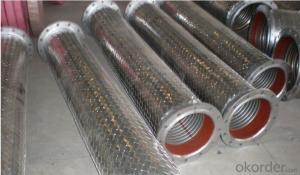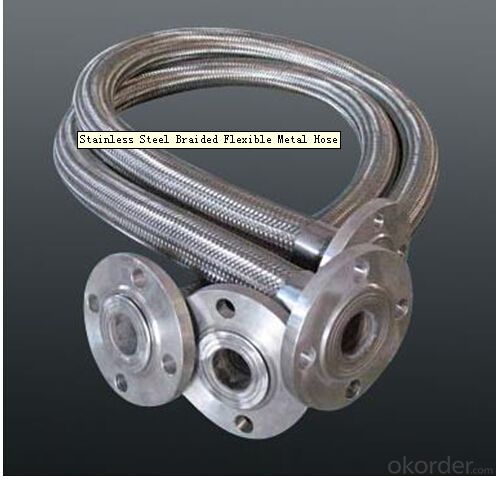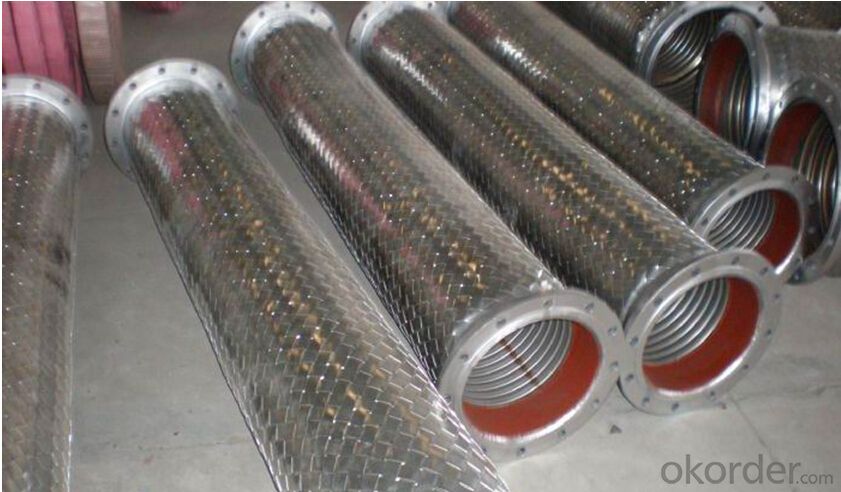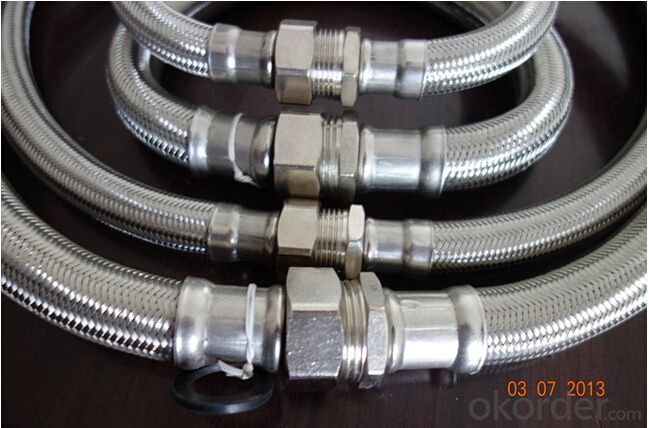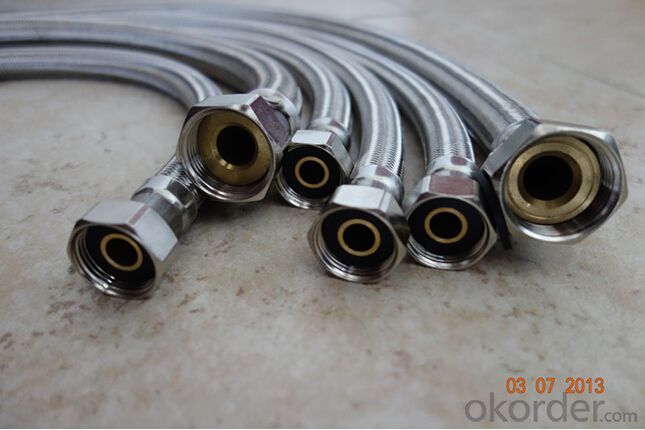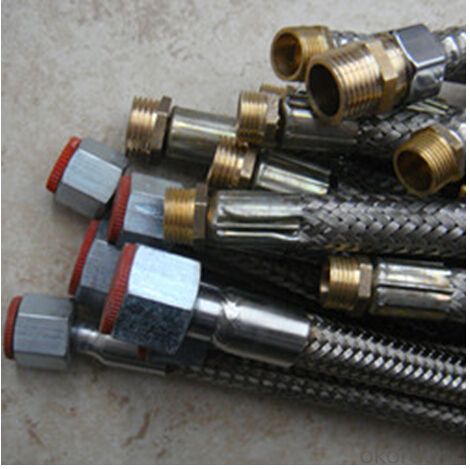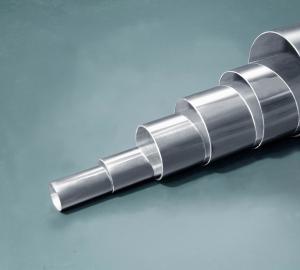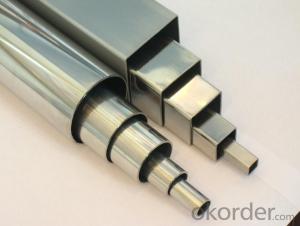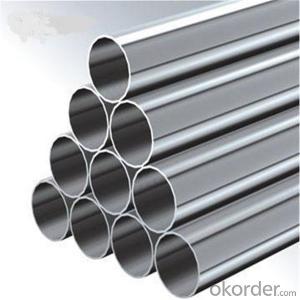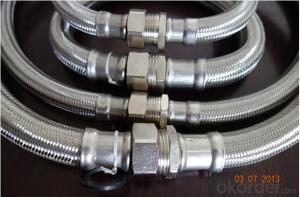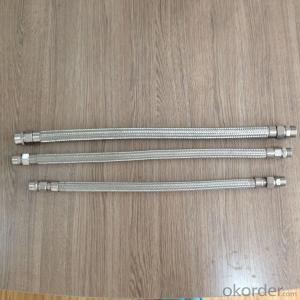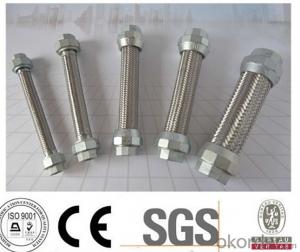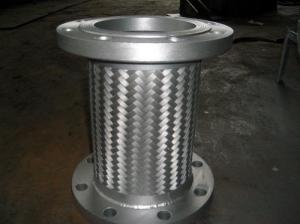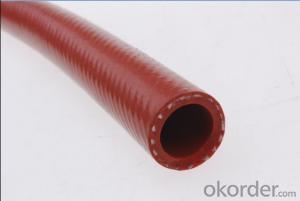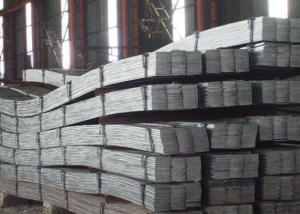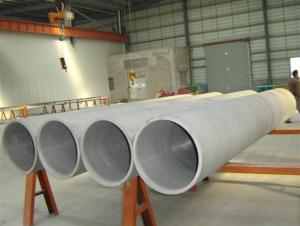Metal Braided Hose with Flexible Material
- Loading Port:
- Tianjin
- Payment Terms:
- TT OR LC
- Min Order Qty:
- 1000 pc
- Supply Capability:
- 100000 pc/month
OKorder Service Pledge
OKorder Financial Service
You Might Also Like
Specification
Metal Braided Hose with Flexible Material
Applications of Metal Braided Hose with Flexible Material:
--Refueling system
--Chemical and pharmaceutical industry
--Industrial hydraulic systems
--Air conditioners in industrial and construction –site vehicles
--Food and beverage industry
--Special and standard industrial applications
--Water and cleaning management
Features of Metal Braided Hose with Flexible Material:
1. )O. D.: 13-18MM 0.2-3M long
2. )Nut.: Nickel/Chrome Plated Brass (Zinc / Iron / Aluminum is available)
3. )Size Of Nut.: Female&Male 1/2''; 3/4''; 3/8''; 7/8''; 5/16'', and M10...
4. )Insert.: Brass (Zinc / Aluminum / Plastic is available)
5. )Inner tube.: Rubber/ EPDM/PVC
6. )Covered Material: Stainless Steel 201, 301, 304 /Aluminium Wire
7. )Working Pressure: 5Kg-15Kg
8. )Temperature: 0-92° C
9. )Quality Assurance: 3 years
RemarkAPPLICATION: HOUSEEHOLD WARE, BATHROOM WARE, SHOWER HOSE
PAYMENT: T/T, L/C
DELIVERY TIME: 20DAYS OR 30DAYS AFTER RECEIVED 30% DEPOSITS
MOQ: 5000PCS
ODM&OEM IS ACCEPTABLE
PackageInner: PP bag /Blister packing Outer: Carton box
Specifications of Metal Braided Hose with Flexible Material:
NO | I.D | Refer to O.D | Working pressure | Burst pressure | approximate Weight | |||||
(inch) | (mm) | (inch) | (mm) | MPa | Psi | MPa | Psi | kg/m | lbs/ft | |
1 | 1/8 | 3.2±0.2 | 0.35 | 9±0.3 | 2.06 | 300 | 8.27 | 1200 | 0.078 | 0.12 |
2 | 5/32 | 4±0.2 | 0.4 | 10±0.3 | 2.06 | 300 | 8.27 | 1200 | 0.092 | 0.14 |
3 | 3/16 | 4.8±0.2 | 0.43 | 11±0.3 | 2.06 | 300 | 8.27 | 1200 | 0.108 | 0.16 |
4 | 1/4 | 6.3±0.3 | 0.5 | 12.7±0.3 | 2.06 | 300 | 8.27 | 1200 | 0.134 | 0.2 |
5 | 5/16 | 8.0±0.3 | 0.56 | 14±0.3 | 2.06 | 300 | 8.27 | 1200 | 0.147 | 0.22 |
6 | 3/8 | 9.5±0.3 | 0.63 | 16±0.4 | 2.06 | 300 | 8.27 | 1200 | 0.182 | 0.27 |
7 | 15/32 | 12±0.3 | 0.75 | 19±0.5 | 2.06 | 300 | 8.27 | 1200 | 0.238 | 0.35 |
8 | 1/2 | 12.7±0.4 | 0.78 | 20±0.5 | 2.06 | 300 | 8.27 | 1200 | 0.262 | 0.39 |
9 | 5/8 | 16±0.4 | 0.94 | 24±0.5 | 1.03 | 150 | 4.12 | 600 | 0.351 | 0.52 |
10 | 3/4 | 19±0.4 | 1.13 | 28.8±0.5 | 1.03 | 150 | 4.12 | 600 | 0.515 | 0.77 |
11 | 1 | 25.4±0.5 | 1.38 | 35±0.6 | 1.03 | 150 | 4.12 | 600 | 0.637 | 0.95 |
Images of Metal Braided Hose with Flexible Material:
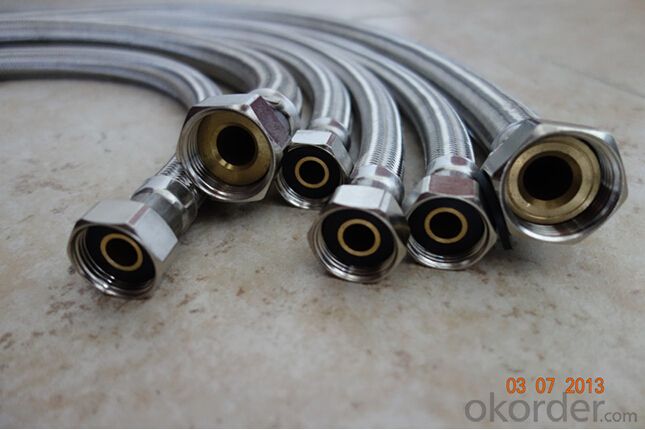
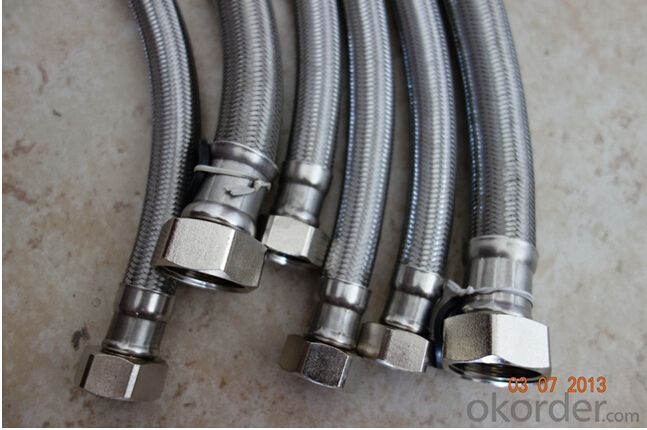
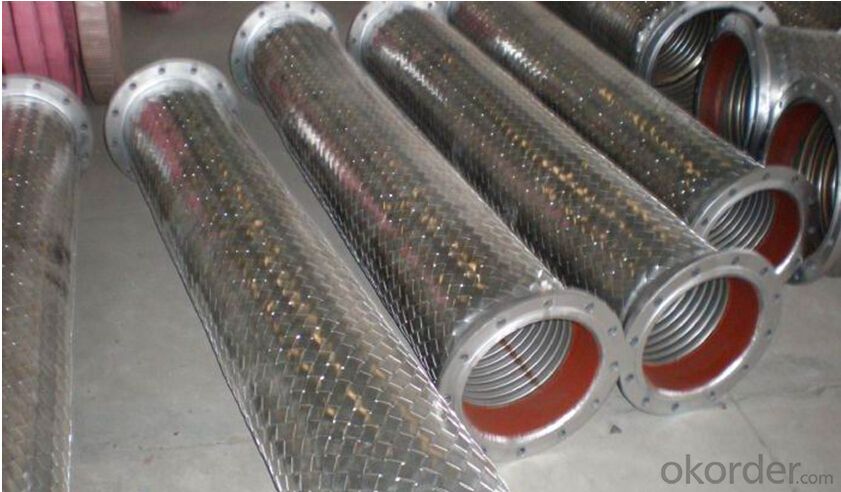
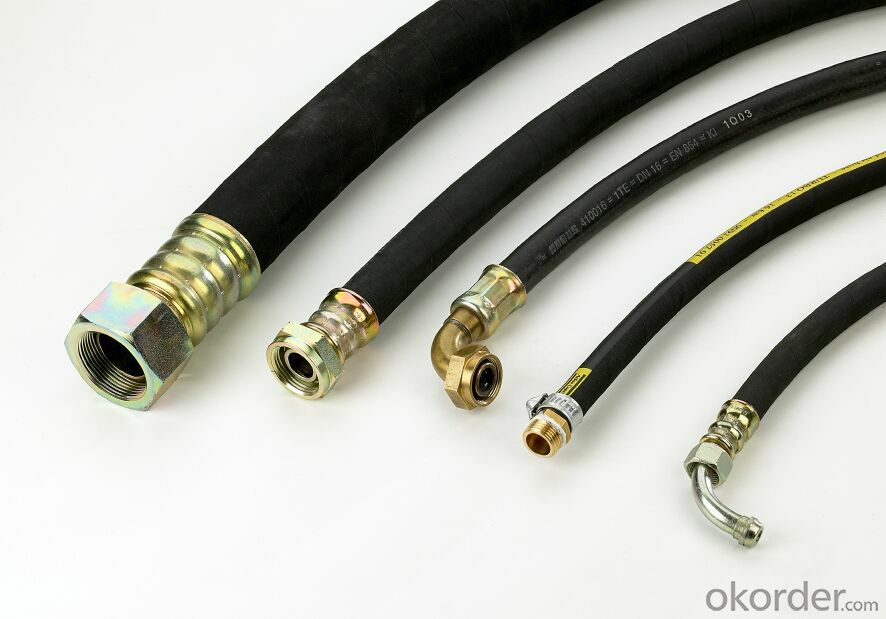
Package of Metal Braided Hose with Flexible Material:
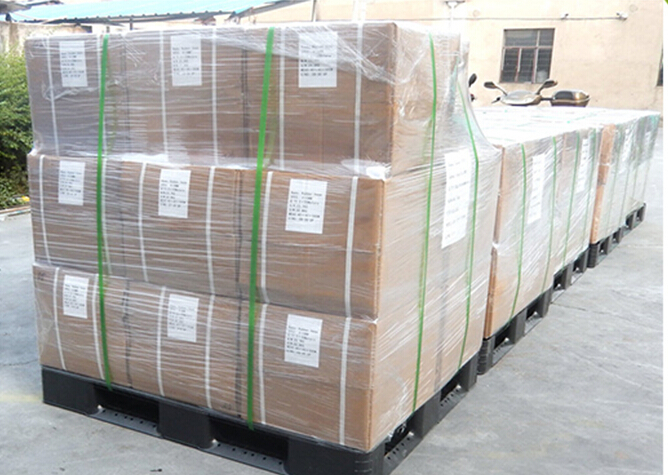
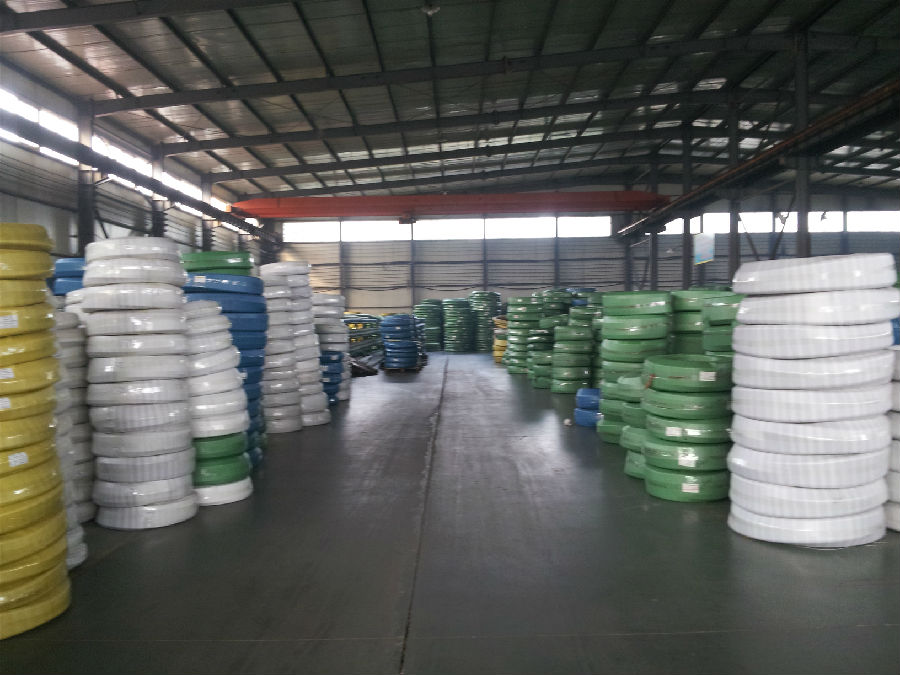
FAQ of Metal Braided Hose with Flexible Material:
Who we are:
Answer: We CNBM is a Chinese state-owned enterprise ranked 267th among the Global Fortune 500, as the largest building materials company,we have over 300 affiliated companies,and so many production lines and branch office distribute in China.
2. About our quality:
Answer: Every product needs to be quality proved before shipping.
3. About our service:
Answer: We could gurantte that we can reply you in 2 working hours.
- Q: Can stainless steel pipes be used for irrigation systems?
- Yes, stainless steel pipes can be used for irrigation systems. Stainless steel is a durable and corrosion-resistant material, making it suitable for use in irrigation systems where water exposure is constant. Additionally, stainless steel pipes are known for their longevity and ability to withstand high pressure, making them a reliable choice for irrigation applications.
- Q: How do you measure the thickness of a stainless steel pipe?
- One common method to measure the thickness of a stainless steel pipe is by using a caliper or a micrometer. These tools allow you to accurately measure the outer diameter and inner diameter of the pipe. By subtracting the inner diameter from the outer diameter, you can determine the wall thickness of the pipe.
- Q: 304 stainless steel, welded to seamless difference in what place?
- The strength of the pipeline depends on the alloy composition, which contains the same alloy and the same heat treatment of stainless steel seamless pipe and welded stainless steel pipes essentially consistent strength.After the tensile test and three-dimensional vibration test, welded stainless steel pipes tearing almost all occurred in the region far away from the welding point or local heating. This is because there is little impurity in the weld and the nitrogen content is slightly higher, so the strength of the welded joint is better than that of other parts. However, ASME (American Society of Mechanical Engineers) that welded stainless steel pipes can withstand 85% of the allowable pressure, which is mainly due to improved welding equipment data collection prior to today.The provisions of ASME 100% completely under permit pressure through ultrasonic testing of welded stainless steel pipe. Similarly, Europe and Asia also stipulates that can ensure the quality of welding performance by eddy current testing of welded stainless steel tube for eddy current testing is subject to legal procedures and licensed institutions. TRENT's eddy current test was approved by the Swedish power division. ASME believes the current loss is relatively small, high-quality performance based on the seamed tube.
- Q: Stainless steel seamless steel tube, ordinary seamless steel pipe, which is good?
- The general stainless steel tube is wear-resistant, high temperature resistance, corrosion resistance. Plain carbon steel seamless tubes resist pressure better than stainless steel.
- Q: Are stainless steel pipes suitable for dairy applications?
- Yes, stainless steel pipes are highly suitable for dairy applications. They offer excellent corrosion resistance, hygiene, and durability properties required for the handling of dairy products. Additionally, stainless steel pipes can be easily cleaned and maintained, ensuring the highest standards of food safety and quality in dairy processing.
- Q: What is the maximum temperature for stainless steel pipes?
- The maximum temperature for stainless steel pipes depends on the specific grade of stainless steel being used. Generally, austenitic stainless steels, such as grades 304 and 316, can withstand high temperatures up to 1600-1800°F (870-980°C). However, it is important to consider factors such as the duration of exposure, the presence of corrosive environments, and the specific application requirements. Other grades of stainless steel, such as ferritic or martensitic stainless steels, may have lower maximum temperature limits. It is advisable to consult the manufacturer's specifications and engineering guidelines to determine the appropriate maximum temperature for a particular stainless steel pipe.
- Q: What is the impact strength of stainless steel pipes?
- The impact strength of stainless steel pipes is generally high, as stainless steel is known for its toughness and resistance to impact and deformation. However, the exact impact strength can vary depending on the specific grade and manufacturing process of the stainless steel used in the pipes.
- Q: What is the difference between 304J7 and 316J7 stainless steel pipes?
- The main difference between 304J7 and 316J7 stainless steel pipes lies in their composition and properties. 304J7 stainless steel is part of the 304 series, which is a widely used stainless steel grade known for its excellent corrosion resistance and durability. It contains around 18-20% chromium and 8-10% nickel, which contribute to its corrosion resistance and make it suitable for various applications, including plumbing, food processing, and chemical industries. On the other hand, 316J7 stainless steel belongs to the 316 series, which is a higher grade of stainless steel compared to 304. It contains a higher amount of chromium (16-18%) and nickel (10-14%) as well as the addition of molybdenum (2-3%), which further enhances its corrosion resistance, especially against chlorides and other aggressive environments. This makes 316J7 stainless steel pipes ideal for applications such as marine environments, coastal areas, and chemical processing plants. In terms of mechanical properties, 316J7 stainless steel pipes generally have higher tensile strength and creep resistance compared to 304J7. This makes them more suitable for high-pressure and high-temperature applications. Furthermore, 316J7 stainless steel pipes are often considered more expensive than 304J7 due to their superior corrosion resistance and enhanced properties. However, the specific pricing may vary depending on market conditions and other factors. In summary, while both 304J7 and 316J7 stainless steel pipes offer good corrosion resistance, 316J7 is a higher grade with superior resistance to chlorides and aggressive environments. The choice between the two will depend on the specific application requirements, budget, and environmental factors.
- Q: Can stainless steel pipes be cold worked?
- Yes, stainless steel pipes can be cold worked. Cold working is a process that involves deforming the metal at room temperature, without the need for heating. Stainless steel, being a versatile and ductile material, can be easily cold worked to achieve desired shapes and sizes. Cold working methods such as bending, flaring, swaging, and drawing can be applied to stainless steel pipes to meet specific requirements. Cold working also enhances the strength and hardness of the stainless steel, making it suitable for various applications in industries such as construction, automotive, and manufacturing.
- Q: Can stainless steel pipes be embossed?
- Yes, stainless steel pipes can be embossed.
Send your message to us
Metal Braided Hose with Flexible Material
- Loading Port:
- Tianjin
- Payment Terms:
- TT OR LC
- Min Order Qty:
- 1000 pc
- Supply Capability:
- 100000 pc/month
OKorder Service Pledge
OKorder Financial Service
Similar products
Hot products
Hot Searches
Related keywords

